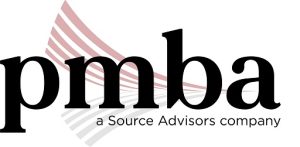The American Institute of Certified Public Accountants (“AICPA”) has requested of the Department of Treasury and the Internal Revenue Service (hereinafter “Service”) to issue some form of immediate administrative authority governing the enhanced R&D Tax Credit Program (“RTCP”) in connection to qualifying Small Businesses and qualifying Start-Up Companies to accurately calculate the R&D Tax Credit from a quantitative perspective effective for tax years beginning on or after January 1, 2016.
Protecting Americans from Tax Hikes Act of 2015
As a background, the Protecting Americans from Tax Hikes Act of 2015 (“PATH Act”) significantly enhanced the RTCP on a myriad of levels by making the RTCP a permanent tax incentive within the Code and considerably restructured the program to:
- Allow qualifying “Small Businesses” (i.e., $50 million or less in gross receipts) to claim the RTC against the Alternative Minimum Tax (“AMT”) for tax years beginning on or after January 1, 2016; and
- Allow qualifying “Start-Up Companies” (i.e., those with less than $5 million in gross receipts and earning revenue for less than 5 years) to claim up to $250,000 of the R&D Tax Credit against the company’s Federal Payroll Tax for tax years beginning on or after January 1, 2016.
Scope of the AICPA Letter to the Service
In an AICPA letter from Annette Nellen, AICPA Tax Executive Committee Chair, addressed to John Moriarty, Acting Associate Chief Counsel of the Service, dated February 1st of 2017, the AICPA requested the Service to issue some form of administrative authority to address and provide much needed guidance to the RTCP in connection to the subsequent areas of the tax law:
- Define “Gross Receipts” for the purposes of I.R.C. § 41(h);
- Clarify the order of the elections that are made under I.R.C. § 41(h) and I.R.C. § 280C(c)(3);
- Clarify that a taxpayer is eligible to make the I.R.C. § 41(h) election for its current taxable year (i.e., the “credit year”) even if it has $5 million or more in gross receipts in one or more of the four taxable years immediately preceding the credit year;
- Clarify the application of the general business credit carryforward provisions of I.R.C. § 39(a) to the credit authorized by I.R.C. § 3111(f), and the limitation imposed under I.R.C. § 41(h)(2)(C);
- Specify that the I.R.C. § 383 limitation on the I.R.C. § 41 credit does not apply to the credit authorized under I.R.C. § 3111(f);
- Identify the mechanics of the I.R.C. § 3111(f) credit and the applicable penalty regimes that apply in the event of a recapture of the payroll tax credit and provide transitional penalty relief;
- Coordinate the election under I.R.C. § 41(h) with Treasury regulations published in May 2016 regarding Certified Professional Employer Organizations (“CPEOs”) that handle a taxpayers benefits, payroll, human resources and related functions;
- Clarify the applicable dates for which the I.R.C. § 41 credit is a “specified credit” available to offset certain AMT liabilities; and
- Establish automatic consent procedures to revoke the I.R.C. § 41(h) election.
Annette Nellen stated that the AICPA’s request “will help clarify the operation of the new rules and are consistent with the intent of Congress that the research credit provide a current economic benefit to a broad class of start-up ventures and small businesses”.
It is highly anticipated that the Service will issue some form of administrative authority governing these aforementioned areas of the tax law whether in the form of Proposed Treasury Regulations; Temporary Treasury Regulations; a Revenue Ruling, and / or a Revenue Procedure in the near term as tax season is now well under way and further guidance is much needed.
 By Peter J. Scalise, Featured in February 2017 edition of CPA Magazine
By Peter J. Scalise, Featured in February 2017 edition of CPA Magazine
Please contact Peter J. Scalise, as featured in CPA Magazine, to schedule a complimentary consultation to discuss the optimal ways to identify, gather and document a sustainable R&D Tax Credit Claim at pscalise@pmbusinessadvisors.com or (212) 835-2211.
